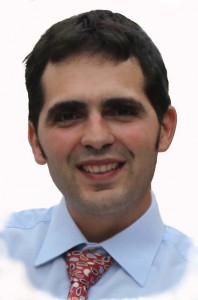Extending classical EEG analysis to non-linear measures

Registration closed.
Abstract
The aim of this workshop is to provide with a set of methods to extend classical EEG analysis to non-linear measures. The final objective will be to understand cognitive processes using non-linear characterization of EEGs. Non-linear characterization has been shown to be important since the signals generated by the brain are non-linear in nature. First, a brief theoretical framework will be given, mostly focused on the main concepts closely related with non-linearity: complexity, fractals and chaos. Second, practical computerized methods and analyses will be explained in detail. These methods will be directed to EEG (MEG) processing. Third, we will focus on the practical application of this measures to experimental procedures or tasks used in cognitive neuroscience. Already published studies and methods will be explained and discussed.
Pre-requisite of participants
Basic knowledge on EEGlab
Course structure
DAY 1
- Brief introduction to non-linear measures in EEG
- Short description of Non-linear dynamical systems
- Why non-linear measures?
- Most common non-linear measures:
- Complexity
- Fractality
- Entropy
- Randomness
- The fractal dimension of EEG time series
- Conceptualization
- Matlab implementation
- The algorithms
- Scripts and how to work in combination with EEGlab
- Application to simulated and real data
- Fractal characterization: the case of focused attention vs. mindwandering
- The bimodal rivalry task
- A non-linear neurocomputational model for mindwandering
DAY 2
- Multiscale complexity in EEGs
- Why should we use multiscale methods?
- Multiscale sample entropy
- Complexity measured as a degree of randomness
- Conceptualization: The Kolmogorov-Smirnoff complexity and the proposed algorithm by Lempel and Ziv
- A multiscale modification of the classical Lempel-Ziv method
- Matlab implementation
- The algorithms
- Scripts and how to work in combination with EEGlab
- Application to simulated and real data
- Matlab implementation
- How could I design a study in which we will use non-linear estimators?
- Experimental procedures
- Non-linear measures as dependent variables
- Try to test your data with a neurocomputational model!
About the speaker
Born in Granada in 1979. Graduated in Psychology in the University of Granada in 2003. He started his master thesis in the University of Granada focused on the study of EEG correlates of different cognitive processes related with memory and language.After two short stays of 4 months each in the University of Sussex (UK) and University of Nijmegen (The Netherlands), he defended an European doctorate in 2009 with a thesis entitled: Lexical access in translation and inhibitory mechanisms involved in language switching.
After a short period of time working a as postdoctoral researcher in the University of Granada, he moved to San Sebastian (Spain) where he started as a postdoctoral researcher in the Basque Center on Cognition Brain and Language (BCBL). He was contracted as a temporary professor in the department of Psychology, University of Jaén (Spain) in 2011, where he is now.



